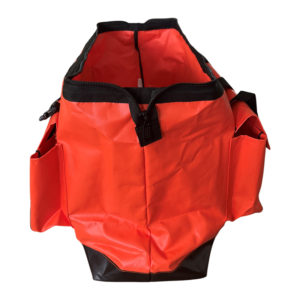 Tool bags designed specifically for carrying and transporting equipment are popular in many fields. They generally keep tool sets protected from theft and in prime working condition. They come in a wide range of shapes and sizes, including tote, shoulder, backpack/rucksack, hold all, and canvas, and they make carrying tools and supplies much simpler. They come in various materials, including metal, cloth, plastic, and leather.
Tool bags designed specifically for carrying and transporting equipment are popular in many fields. They generally keep tool sets protected from theft and in prime working condition. They come in a wide range of shapes and sizes, including tote, shoulder, backpack/rucksack, hold all, and canvas, and they make carrying tools and supplies much simpler. They come in various materials, including metal, cloth, plastic, and leather.
To What Extent Can You Advise Me On The Sort Of Tool Bags To Purchase?
There are a few things to keep in mind while shopping for a tool bag to ensure you have the best possible option. You may get tool bags in various shapes, sizes, materials, and configurations (including with and without wheels and shoulder straps). Because of the weight they often have to bear, they are typically highly sturdy. Extras like zippered compartments, detachable shoulder straps, and padded compartments inside are just a few ways some bags go above and beyond the norm to meet your needs.
The typical tool bags have cushioned straps so it may be carried over the shoulder. If you don’t need to transport a large number of tools or if you drive between jobs and can set down a heavy tool bag, a portable tool bag may be all you need.
A backpack-type tool bag may be preferable for certain contractors and tradespeople when working in confined spaces or when both hands are needed for another task. This method might be more comfortable than holding the toolkit in one hand since the weight is distributed evenly over both shoulders.
When you need to carry a lot of heavy items or an extensive collection of equipment, a tool bag with wheels is a great investment.
Uses of Backpack Tool Bags
Carrying a large tool bag for any time, whether by hand or slung over one shoulder, is not an ergonomic solution. Because backpacks are carried over both shoulders, the load is evenly divided. The cushioned shoulder straps and horizontal sternum strap help disperse the weight evenly.
Pull-Out Storage Bins
The main compartment of many backpacks may be taken out to reveal additional compartments. These trays may be removed so you can take only the necessary tools instead of lugging about a whole toolbox. Some have detachable tool caddies with several compartments, letting you bring a select few instruments into quarters otherwise unsuitable for their transport.
Having a Rock-Solid Foundation of Tool Backpack
Bags, particularly the bottoms, are prone to breaking due to their weight. A tool backpack may seem like they would topple over if you put them down, but their sturdy construction makes that unlikely to happen. If you often move large tools, you may want to choose one that has a solid base to prevent it from collapsing under the strain.
Related Article
Conclusion
Tool bags are useful for keeping your tools in order, transporting them from one place to another, and stowing them away. The equipment will be safe from harm in its specified location.
These packs are lightweight, sturdy, and more durable than toolboxes. They take up less room than traditional tool chests and come with extra compartments for storing various tools. These advantages can only be attained by investing in a high-quality tool bag.
